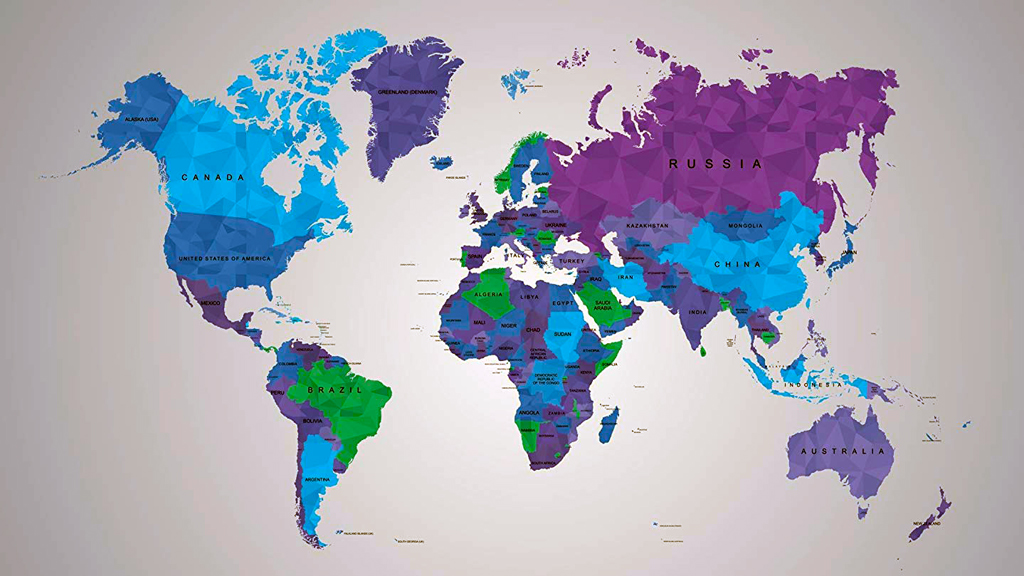
2020: The state of play
The year 2019, which set the stage for extraordinary developments, has now ended. Living the fast life must be the distinguishing feature of modern times. Over the last year, the world talked about Brexit, NATO's future, U.S. President Donald Trump's impeachment, Israeli expansionism, the murder of Jamal Khashoggi, protests in Hong Kong, Iran, Iraq, France and Bolivia, trade wars, the S-400 deal, Turkey's local elections, the Syrian civil war, Operation Peace Spring, the assassination of Abu Bakr al-Baghdadi, the Aramco attacks, Turkey's new indigenous car, Kanal Istanbul, U.S. sanctions, economic recovery, the Eastern Mediterranean and Libya.
Share
The year 2019, which set the stage for extraordinary developments, has now ended. Living the fast life must be the distinguishing feature of modern times. Over the last year, the world talked about Brexit, NATO's future, U.S. President Donald Trump's impeachment, Israeli expansionism, the murder of Jamal Khashoggi, protests in Hong Kong, Iran, Iraq, France and Bolivia, trade wars, the S-400 deal, Turkey's local elections, the Syrian civil war, Operation Peace Spring, the assassination of Abu Bakr al-Baghdadi, the Aramco attacks, Turkey's new indigenous car, Kanal Istanbul, U.S. sanctions, economic recovery, the Eastern Mediterranean and Libya.
Many of those issues will remain on everyone's radar in 2020.
Obviously, we are all praying for good things in Turkey and around the world. But we have to acknowledge and adapt to the chaotic side effects of this period of "great power competition."
The crisis of the liberal world order, which started under U.S. President Barack Obama and continued full swing on Trump's watch, will further deepen in the new year.
With the next presidential election around the corner, the U.S. will presumably act less predictably and more irresponsibly when it comes to global crises. If Trump clinches re-election and retains control of the Senate, Washington's withdrawal from the Middle East, among other places, could pick up the pace.
Again, an empowered Trump could escalate tensions with China and repair America's relationship with Turkey and others.
If, however, the Republicans lose their Senate majority, Trump's second term will be characterized by a tug of war in Washington.
Meanwhile, in Britain, Prime Minister Boris Johnson will attempt to oversee his country's departure from the EU – and face the serious challenge of keeping it together. It would seem that the Scots will re-embrace the cause of secession in the coming years.
There is no reason to expect French President Emmanuel Macron and German Chancellor Angela Merkel would address Europe's severe shortage of leadership or deepening economic problems.
Whereas the West rings in the new year with mounting problems, Russia seems pretty comfortable. Under Vladimir Putin's leadership, Moscow will continue to strengthen its political influence over Europe and its military presence in the Middle East.
China, in turn, may have to take political measures to safeguard its trade empire, realizing that there is no more room for free-riding on the back of liberal economics.
One thing, however, is certain: There will be no shortage of turmoil in Africa and the Middle East in the years to come. The dust hasn't yet settled in countries that set the stage for the Arab revolts. Authoritarian regimes, popular protests, proxy wars, terrorism and competition among regional powers will continue to shape the region. Libya, however, stands to replace Syria as the main theater.
Nor is there any reason to expect good news regarding the Palestinian question. Emboldened by its ability to secure the support of Arab states, Israel will continue to play a destabilizing role in the region. Under the mounting pressure of U.S. sanctions, Iran will work hard to show its teeth to the Gulf states and preserve its economic and political stability. Finally, Saudi Arabia finds itself in a tight spot due to the crown prince's political profile – who faces murder allegations.
Turkey stands to be the region's most active player in 2020. The Syrian conflict (read: Idlib, refugees, the fight against the terrorist group YPG), Libya, the Eastern Mediterranean and relations with the U.S. and Russia will be on Ankara's foreign policy agenda.
Obviously, developments in those areas will create opportunities and present challenges.
Russia and Bashar Assad's forces intend to conquer the de-escalation zone in Idlib step by step. If Turkey cannot rely on U.S. and European support to deal with the threat of 2 million to 3 million new refugees, it may have to establish an additional safe zone in Idlib.
Meanwhile, the Turks need to manage U.S. sanctions, which are based on their S-400 procurement from Russia, to prevent a collapse in bilateral relations.
Turkey's involvement in the Libyan theater must lead, through closer cooperation with Tunisia, Algeria and Qatar, to a political solution in that country.
Turkey has been dealing with the negative side effects of regional turbulence and finds itself in an advantageous position thanks to its strong political leadership and foreign policy activism. Turkish moves in the Eastern Mediterranean and Libya will be crucial demonstrations of that advantage.
[Daily Sabah, 3 January 2020]
Tags »
Related Articles








